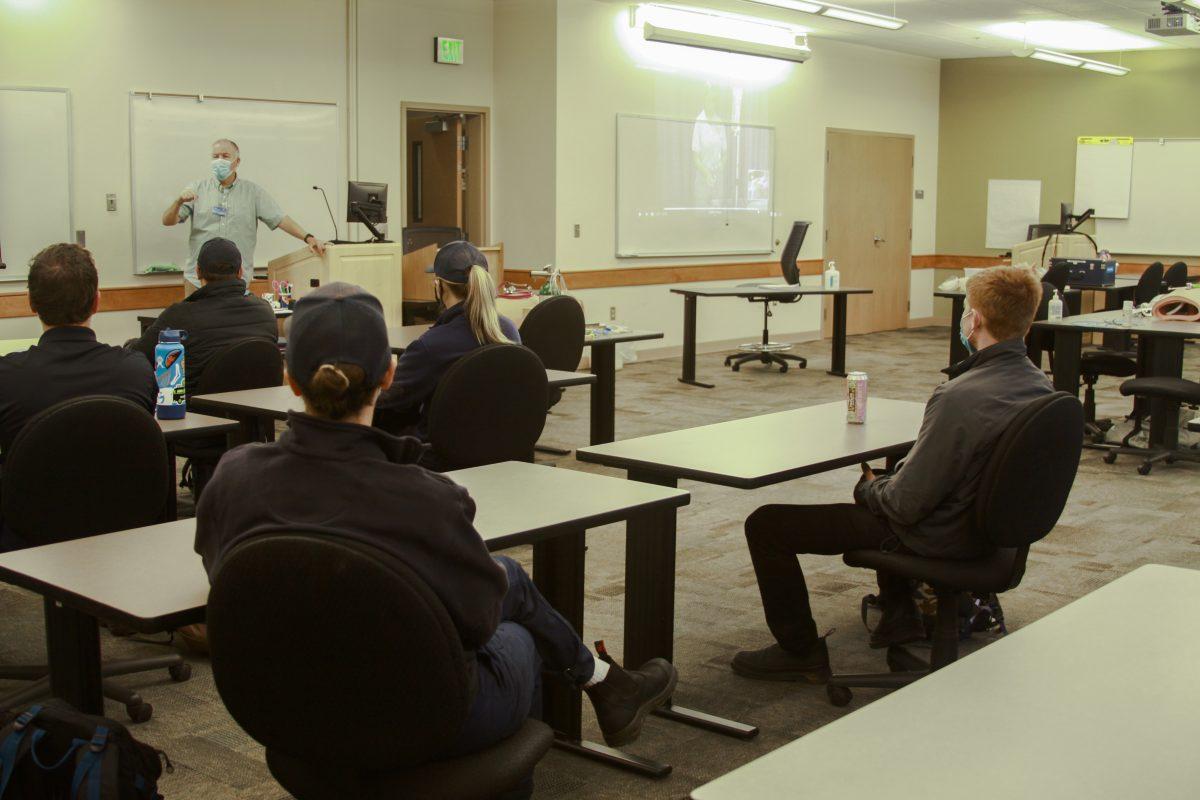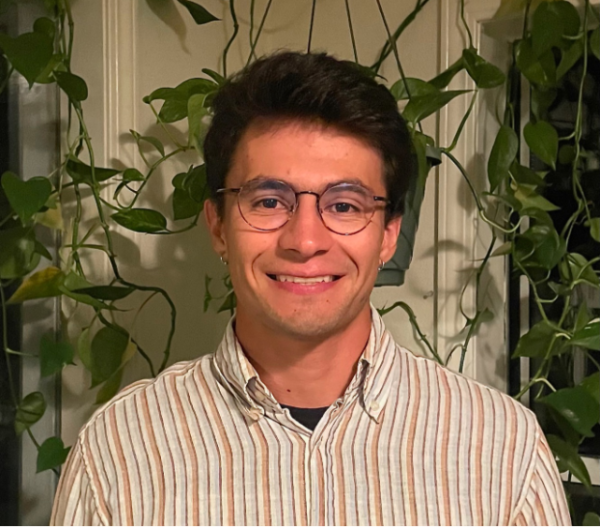Maitiu Millar-Sanchez/The Broadside
While COVID-19 safety measures have shut down other EMS programs across Oregon, COCC’s own program continues on. While In-person classes weren’t available for the 2019-2020 cohort due to COVID safety measures, all students that didn’t request an extension graduated on time. Current EMS students are all expected to graduate on time as well thanks to efforts by the program’s administration.
Students at COCC’s program expressed gratitude to people like Paramedicine Program Director David Schappe because COCC is one of the few EMS programs in Oregon still operating with labs and clinicals (medical response training). One student even said, “The director of our program fought super hard for us to [be] in class and I’m thankful we’re actually able to do that.” Schappe said classes could continue if they were modified with “proper precautions.” Students back in March ,during the initial days of the lock downs, didn’t have that option. Some students were anxious about whether or not they would graduate on time due to the shutdowns. Schappe expressed that he and the administration were empathetic to this at the time. COCC’s Paramedicine program takes about 3 years to complete and a student graduates with two associates degrees in structural fire science and paramedicine.This year’s cohort are able to continue with labs and clinicals as long as certain precautions are met. Hours responding to certain medical situations are logged for students graduation requirements.
The 2020-2021 cohort faces some new challenges. Students found out they could attend clinicals and labs less than a week before classes were scheduled to begin for Fall term. Students also mentioned having to fill out paperwork to hand back to their instructors so they could continue their studies.Schappe mentioned that he feels lucky to have a team of instructors who are experienced field providers dedicated to the students they teach.Some students felt that the COVID Safety measures were inconvenient but necessary.
Students also expressed that they didn’t feel anxious about getting sick. One student said, “We respond to medical situations all the time. The precautions feel like they are enough.” These precautions include all current CDC guidelines which include things like 6 feet of social distancing and N-95 masks. In clinical settings these measures include gowns and face shields. Students are also required to have their temperature taken before every clinical.
Schappe has said the greatest challenge the program faces is not knowing what’s ahead. Going forward the program will “continually reevaluate the context” in navigating keeping the program healthy and safe while also providing students the skills they need to succeed in their careers. Students also expressed that flexibility in a dynamic environment is part of the skill set they acquire in the program and their own careers. Schappe also said that going forward that all decisions made about what in-person COVID safety measures look like will be based on “data and science… that is what medicine is all about.”









